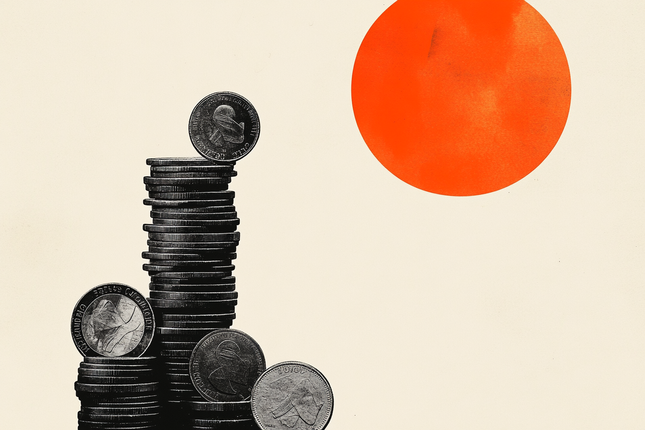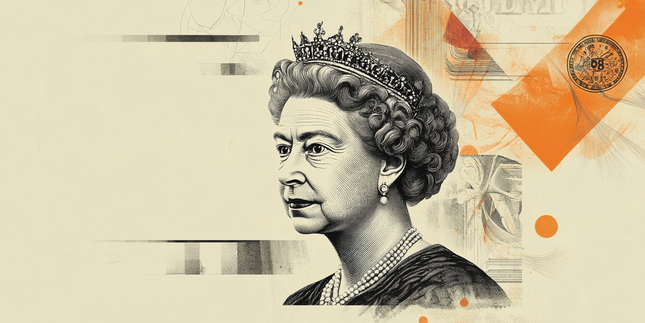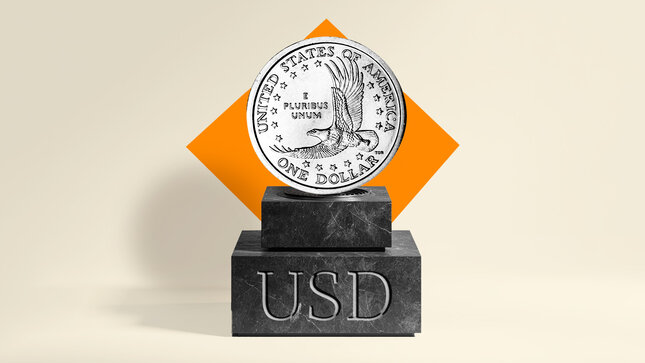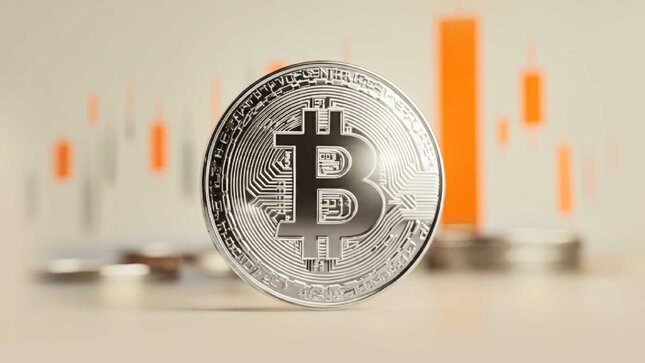I hate to lose. It’s just such a bad feeling when I lose. Everything else in my life I can pretty much force my way and prevail – but trading has my number. And I know that losing is part of trading, but that doesn’t make it any easier to take a loss. It’s one thing to tell yourself that platitude, but it’s quite another to actually take a series of losses and see your P/L shrinking. It’s getting harder to keep my winning attitude when I lose, so I have to push myself even more. I can see what I’m doing is not working, but I keep on doing it hoping that through sheer determination things will turn around.
Your Winning Mindset Is Killing Your Trading
To be successful, traders must travel down a collision course between two equal, but very opposite, forces. First is the force (deeply rooted in the survival instincts of our species) that wants to win (and in particular, not to lose) and make things happen. This is a trait that is hard wired into human response patterns to uncertainty because of its success long before humans had a psychology of the self. Failing is not an option from this deeply ingrained bias. Failing meant death to our early ancestors, when they were dealing with the dangerous uncertainties of their world. Unfortunately that world is still real today and is actionable to the limbic brain of modern man and exacerbated while trading. You still carry your caveman brain and instincts into trading every time you pull up your charts. That mindset is where the trouble begins.
The second, opposing force is the real powerlessness of the trader to control outcome regardless of his best efforts – expressed as the fear of failure. Despite a trader’s desire and will to win, trading is an endeavor about managing the randomness and probability of taking action in an uncertain world where winning and losing are both potential outcomes. And where there is no certainty about what will happen. It is this sense of powerlessness (expressed in fight/flight responses to the fear of losing or as aggression that leads to over trading or revenge trading) that has to be transformed from ancient emotional brain programming for short term survival. Your survival instinct (limbic brain responses to uncertainty) have to be modified for the world of probability found in trading and active investing. This is the elephant in the room that few acknowledge in trading.
Put this collision course into perspective. Every trader “knows” that he or she has to follow his/her rules to create an edge of probability in the randomness of the markets and increase the probability of winning a particular trade or group of trades. Everybody “knows” this, or, at least, gives lip service to it. Yet very traders can “do” this – follow their rules under pressure with skin in the game.
To illustrate this point, a client of mine was at a local trader’s group meeting in Washington, DC. He had the floor and was talking about his struggles with following his rules and how he was finally making progress. Then he asked those in this sizable group to raise their hands if they had trouble following their rules. Nearly everyone raised their hands. Everybody “knows”, but no one can do it. You would think that for something as important to success in trading as following your rules, everybody would be searching for an answer to this problem. They may be searching, but they are searching in all the wrong places.
Their knowledge of trading suddenly disappears when the money is real and they are gripped by the reality of their powerlessness over outcome. The fear of failure becomes real. Human survival instinct trumps the thinking brain in the blink of an eye. The ancient emotional brain wants one thing while the potential long term success envisioned by your modern thinking brain wants another. And the trader is caught in the middle between two powerful, but opposing, forces. The emotional brain is experiencing the powerlessness of the fear of failure (death) in the short term, while the new thinking brain envisions an edge in the probability of success. This is the internal drama you face every day when trying to follow your rules. The emotional brain’s survival instincts win this encounter every time, until you learn how to work with the emotional brain.
This is what your autonomic nervous system experiences, which is outside of conscious awareness and control. But how do you experience the encounter with uncertainty with money on the line? Traders experience anxiety, fear, even dread, and fall into self-doubt. They begin looking for more confirmation in their set ups as a way of “not losing”. They believe if they lose, they fail. And failing with money on the line triggers the survival oriented fight/flight response to the uncertainty they are experiencing. This is happening without their conscious consent. It is simply an automatic limbic response to the uncertainty and risk inherent in the situation.
Your limbic brain (your emotional brain) would rather avoid the possibility of losing (of failing) because it perceives it as a threat to life. The limbic brain does not know about psychological discomfort. It is all about short term survival. And if it can keep you out of the trade, then it wins short term survival because you cannot fail if you do not enter the game. It is a short term win for your emotional brain, but a long term loss for your effectiveness as a trader.
Other traders experience their short term survival instincts differently. Some find that when the trade “goes against them”, they panic or turn to anger and throw good money after bad hoping that the trade will turn around so that they will not have to experience failure. The fight/flight response is already triggered for short term survival and the thinking brain (with its long term success view) is pushed to the side. In their experience of failure, traders then want to get their money back and begin revenge trading. This is the same fight/flight response to uncertainty as the fear based response – only this survival route is governed by anger and aggression. Either way, the thinking brain has been hijacked by the emotional brain and its fear of failure that has taken over the trader’s psychology.
Impulse, or over trading due to over confidence, has a similar emotional pattern but is driven by your “chase” instinct. Our hunter-gather caveman ancestors chased a lot of prey as part of their quest for survival. When the opportunity was there, they had to jump on it – or risk going hungry. Chasing prey was a way to make survival success happen and avoid survival failure. They had to be confident in the face of danger for the sake of survival. There was also a thrill of the chase that pushed our ancestors to brave dangerous situations that were very risky if they failed. But failure was not an option if the hunters and their families were to survive. It became a powerful driving force that found a home in modern trader’s psychology. Because of its success, the chase instinct got wired into the habitual patterns of successful hunters over the eons. Then, caveman days gave way to the postmodern world. And the modern human being (with his large thinking brain) found trading, but brought his emotional brain from his hunter-gather days into the fray. When you sit down and feel the urgency to act on a trade, you are activating this powerful survival chase instinct. Only now you are jumping into ill-advised trades. The urgency to act overwhelmed trading psychology and produced over-trading.
Stepping Up to Your Fear of Failure
To develop your brain and mind for risking capital in uncertain markets, you must redefine your beliefs concerning failure. Failure (without biological threat) is the way the brain learns. It does not learn from success. Success literally digs the pattern deeper into automatic responses outside of the thinking brain. And trading success has a lot of failure in it. But the way you approach and deal with failure has to change to redevelop the mind for trading. Let me explain.
Recently Shaq O’Neal, the famed basketball player was on the Today Show talking about his experience with failure. His team was playing Michael Jordan’s team for the championship. Shaq spoke about what a difficult series it was for him – and that he did not play well. Shaq was disappointed in his performance. He felt he failed himself and his team. After the game when the players were shaking hands, Michael Jordan came up to Shaq O’Neal and patted him on the back. Then O’Neal told the audience what Jordan said to him – “Shaq, you played a hard game. You must get comfortable with failure and work with it if you plan to get to the next level.” Then Jordan walked away. Those few words from Michael Jordan opened up Shaq’s eyes to a new way of understanding failure. Failure was announcing that you needed to develop your skills and beliefs to a new standard. It was not an indictment of your soul as a human being.
Most traders hide from their failures, and, consequently, stay stuck in a mindset that cannot meet the challenges of trading and managing uncertainty. You are going to fail as you trade. The question is what are you going to do with that failure?
Separating Failure from Identity
People invest enormous emotional energy into being a winner (and not a loser). And a winner cannot fail. This identity of being a winner is sorely tested through trading. The problem with a winning mindset is that you have to win to maintain it. And with the winner’s mindset there is an assumption that you can make results happen in your favor. This mentality works well in many domains of a person’s life. People often come to trading after experiencing success (winning) and bring this attitude of hard work, positive attitude, and a will to win into their new career in trading. The thought is that the winner’s mindset worked before and it will work in trading.
In this mindset, failing is about not trying hard enough, not bringing enough of a willful mindset to the game, or not being positive enough. When you lose, you get up and go at it again – being persistent until you win. You push yourself and tough it out. Failing is not an option for a winner in this narrative. Failing is a character flaw that you have to stand up to so you can force it into being a winner. This way of viewing the world is fostered in competitive cultures so that winning is everything and failure is unacceptable – and failure brings shame.
Many an alpha male and female have brought this attitude of winning by making things happen and being in control to their trading life. Many a perfectionist has brought perfectionism (not making a mistake) to trading as a way to control outcome. After all, if you do everything right without a mistake, you will win and avoid experiencing failure. Then both the alpha and the perfectionist get to trading and discover that controlling outcome is an illusion, though it has served them well in the past. The alpha discovers he or she has no power to force outcome to his/her will. And the perfectionist discovers that you can do everything right and still be wrong in trading. This is the collision course spoken in the beginning of this article
The way they have dealt with randomness and uncertainty (so hated by the emotional brain) in the past has no relevance for the environment to which they must now adapt. This new opportunity for your brain and you to learn initially flips out your limbic brain. It has settled in on a particular learning that defines what success and failure are and how to avoid failure for short term survival success. It does not know how to transform the earlier emotional learning of what a winner is into the mindset required for success in trading.
Actually, in trading you are asking the emotional brain to do the exact opposite of what it was designed to do by natural selection. Its survival motivation is set – avoid failure. (To the emotional brain failure means death.) It abhors randomness and uncertainty and you are pushing it into engaging uncertainty while maintaining rational control. This is not going to happen. Remember the trader who asked a crowd of fellow traders if they could follow their rules under pressure? Well, this is the emotional brain on uncertainty that you brought to trading.
Redefining Winning and Failure
Winning does not define the worth of the human being. It only means that you landed on the right side of probability. And failure only means that you landed on the wrong side of probability, relative to your interest. Neither says anything about your value as a human being. Yet, when you are trading, winning and losing become personal – particularly if you have some back to back losses. The truth is (even if you did everything right) there was only a probability of winning – and a probability of losing. You do not have (nor will you ever have) the ability to control outcome in trading. But you do control the mind that you bring to the moment of performance. You can master your performance, which you can control, and that gives you the capacity to make manifest the edge your system and rules theoretically give you.
This is where theory and practice become partners. Your job is to focus on performance in the moment as you are trading. Winners and losers will come and go. This is the probability based mind needed for trading. You will know you are thinking from this new mindset when you evaluate your trading day. The questions are simple – is this a valid set up? Would I take it again regardless if I won or lost? Did I deliver a master’s performance? It was never about winning and losing. It was never about avoiding failure. It was about learning from failure and accepting failure (losing) as a skill set to improve performance. This is the emotional self-mastery that you learned from listening to your failure and reconstructing the self that trades. You are the edge that drives your trading system. The power was always inside you waiting to be tapped and developed. This is one of the greatest lessons learned in a trader’s self-development.
The risk of trading can be substantial and each investor and/or trader must consider whether any investments they make are suitable investments. Past performance, whether actual or indicated by simulated historical tests of strategies, is not necessarily indicative of future results. Rande Howell does not make any recommendation or endorsement as to any investment, advisor or other service. In addition, Rande Howell does not offer any advice regarding the nature, potential value or suitability of any particular investment, security or investment strategy. The material shown does not constitute investment advice and you should not rely on any material herein to make (or refrain from making) any decision or take (or refrain from making) any action.
Editors’ Picks

EUR/USD Price Annual Forecast: Growth to displace central banks from the limelight in 2026 Premium
What a year! Donald Trump’s return to the United States (US) Presidency was no doubt what led financial markets throughout 2025. His not-always-unexpected or surprising decisions shaped investors’ sentiment, or better said, unprecedented uncertainty.

Gold Price Annual Forecast: 2026 could see new record-highs but a 2025-like rally is unlikely Premium
Gold hit multiple new record highs throughout 2025. Trade-war fears, geopolitical instability and monetary easing in major economies were the main drivers behind Gold’s rally.

GBP/USD Price Annual Forecast: Will 2026 be another bullish year for Pound Sterling? Premium
Having wrapped up 2025 on a positive note, the Pound Sterling (GBP) eyes another meaningful and upbeat year against the US Dollar (USD) at the start of 2026.

US Dollar Price Annual Forecast: 2026 set to be a year of transition, not capitulation Premium
The US Dollar (USD) enters the new year at a crossroads. After several years of sustained strength driven by US growth outperformance, aggressive Federal Reserve (Fed) tightening, and recurrent episodes of global risk aversion, the conditions that underpinned broad-based USD appreciation are beginning to erode, but not collapse.

Bitcoin Price Annual Forecast: BTC holds long-term bullish structure heading into 2026
Bitcoin (BTC) is wrapping up 2025 as one of its most eventful years, defined by unprecedented institutional participation, major regulatory developments, and extreme price volatility.
RECOMMENDED LESSONS
Making money in forex is easy if you know how the bankers trade!
I’m often mystified in my educational forex articles why so many traders struggle to make consistent money out of forex trading. The answer has more to do with what they don’t know than what they do know. After working in investment banks for 20 years many of which were as a Chief trader its second knowledge how to extract cash out of the market.
5 Forex News Events You Need To Know
In the fast moving world of currency markets where huge moves can seemingly come from nowhere, it is extremely important for new traders to learn about the various economic indicators and forex news events and releases that shape the markets. Indeed, quickly getting a handle on which data to look out for, what it means, and how to trade it can see new traders quickly become far more profitable and sets up the road to long term success.
Top 10 Chart Patterns Every Trader Should Know
Chart patterns are one of the most effective trading tools for a trader. They are pure price-action, and form on the basis of underlying buying and selling pressure. Chart patterns have a proven track-record, and traders use them to identify continuation or reversal signals, to open positions and identify price targets.
7 Ways to Avoid Forex Scams
The forex industry is recently seeing more and more scams. Here are 7 ways to avoid losing your money in such scams: Forex scams are becoming frequent. Michael Greenberg reports on luxurious expenses, including a submarine bought from the money taken from forex traders. Here’s another report of a forex fraud. So, how can we avoid falling in such forex scams?
What Are the 10 Fatal Mistakes Traders Make
Trading is exciting. Trading is hard. Trading is extremely hard. Some say that it takes more than 10,000 hours to master. Others believe that trading is the way to quick riches. They might be both wrong. What is important to know that no matter how experienced you are, mistakes will be part of the trading process.
The challenge: Timing the market and trader psychology
Successful trading often comes down to timing – entering and exiting trades at the right moments. Yet timing the market is notoriously difficult, largely because human psychology can derail even the best plans. Two powerful emotions in particular – fear and greed – tend to drive trading decisions off course.


